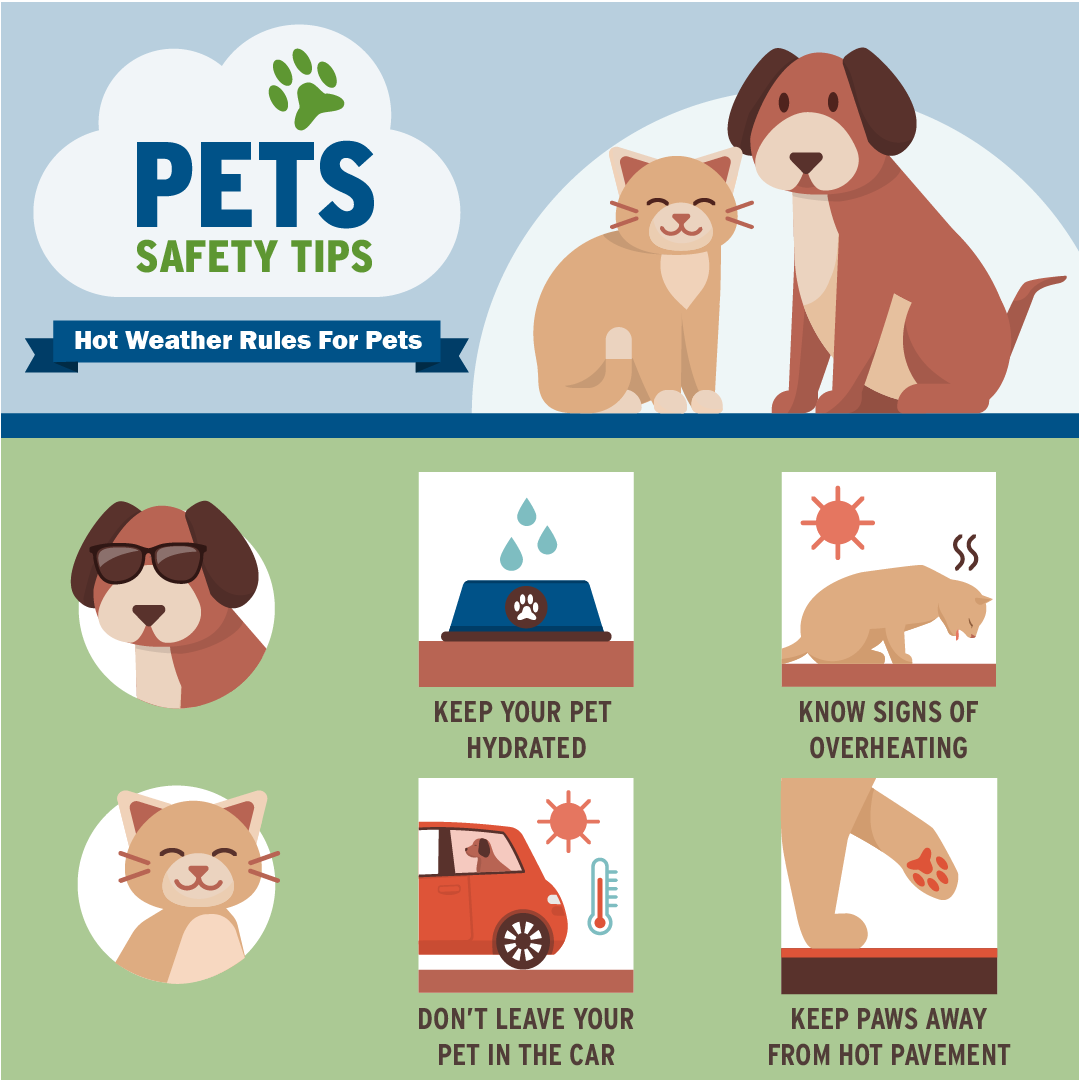
As the summer heat continues, we can’t forget about our fury family members. Many people care for pets, livestock or service animals. It is important to keep them in mind when temperatures rise. Here are 6 ways you can help protect your pet from the heat this summer!
1 – Bring Them Indoors
The hottest parts of the day are typically between 11 a.m. and 2 p.m. If they are outside during this time, be sure they have access to plenty of shade. Bring them indoors often to avoid overheating.
2 – Make Sure They Have Access to Water
Just like us, it is important for animals to stay hydrated to keep cool. Make sure they have access to drinkable water, and you are keeping their water bowls full.
3 – Properly Groom Your Pets
Many breeds of cats and dogs have fur coats that grow during the winter. All that fluff keeps heat insulated. This helps them stay warm in the winter but can cause them to overheat during the summer. Though they may shed some of that hair, frequently brushing them helps to remove excess hair and keep them cool.
4 – Avoid Hot Asphalt/Pavement
Oftentimes we do not realize how hot the ground is because we’re wearing shoes. Animals don’t wear shoes so pavement and asphalt can be painful and potentially dangerous. Walking your pets in the grass or avoiding taking them outside during the hottest part of the day can help. A good tip is to touch your own palm to the pavement to see if it is too hot for your animal.
5 – Never Leave Your Pet in a Car
On a 90-degree day, temperatures can reach 108 degrees inside your vehicle after only 10 minutes. Leaving your pet in a vehicle is dangerous even if it’s only for a few minutes.
6 – Know the Signs of Overheating
Pets can suffer from overheating. Knowing the signs and symptoms and early intervention can prevent death for heatstroke.
Symptoms include:
- Excessive panting.
- Rapid heartbeat.
- Seizure.
- Purple tongue.
- Vomiting.
- Excessive thirst.
- Unconsciousness.
For more information on how to keep your pet safe in extreme weather, visit Ready.gov.

